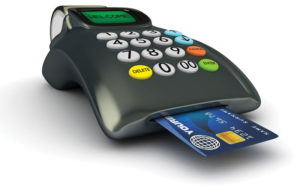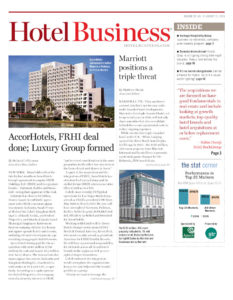SOUTH JORDAN, UT—Dealing with chargebacks can be a hassle, and often, many hotels figure it’s not a fight they can win so they don’t bother trying—but, in most cases, that’s not the best approach.
A chargeback is a transaction reversal that was designed to protect consumers from fraudulent activity, either committed by merchants or other individuals. Consumers can dispute a claim made on their credit card with the issuing bank, which results in the merchant’s bank debiting the amount of the transaction. And it’s something that happens quite a bit in the hotel industry given that the vast majority of transactions at a hotel happen on a credit or debit card.
Dave Wilkes, CEO of Chargeback, a company that provides solutions and tools to help merchants monitor, respond and be alerted to chargebacks, noted there are a couple of major pain points for the hotel industry in particular. The first has to do with third-party booking sites. “Oftentimes, when third-party booking sites take reservations from the clients, they take the customer’s card and then they pay the hotel with a virtual card number. They pre-book and pay for the reservation for the consumer to the location,” he explained. “Then, when a chargeback occurs between the consumer and the OTA, the OTA will turn around and reverse that transaction with the hotel owner; it causes a massive headache because that chargeback is not in support of, or in compliance with, the terms of service at that hotel—a 72-hour cancellation notice or whatever it is at that particular hotel. It creates a pretty massive problem for the hotel owner.”
The other major pain point has to do with friendly fraud—this is when cardholders initiate chargebacks without malicious intent. Perhaps the cardholder didn’t realize the water bottle in the room cost $5 or that his traveling companion charged a coffee or a meal to the room. “A lot of times the customer sees that transaction and disputes that transaction, which results in a chargeback,” said Wilkes.
Wilkes noted that it’s not just the $5 water the hotel would lose out on. If the cardholder disputes the charge based on the water bottle, the hotel could be losing revenue from the entire stay. He also noted that hotels incur fees on each chargeback. “It varies by processors. They can have different fees for chargebacks if they happen in their merchant account and it can range from $15 to $20 all the way up to $40 to $50, depending on how it’s negotiated and set up with their processor and their gateway,” said Wilkes. “If you’re getting dozens or hundreds of chargebacks, it’s a significant expense. When the chargeback occurs, the hotel operator immediately loses the value of the transaction—it reverts out of their account—and then they have to respond in a specific period of time or they lose the transaction permanently.”
And, said Wilkes, they should respond. “Every one of those chargebacks is going to cost the hotel owner/operator a significant amount of time, energy and resources to respond, and sometimes it’s such a pain, they don’t do it and ultimately lose the revenue altogether,” he said, adding that the majority of these are winnable claims. “Across our network, especially in this category of merchant, you’re going to see between 50% and 75% of these transactions are friendly fraud—like the example of the water bottle where they lose all of the revenue of the transaction because of the dispute on the water,” he explained.
So how should hotels respond? “It really becomes a collaborative conversation with their acquiring processor and the network, and even potentially the card issuer depending on the size of the hotel’s operation,” said Wilkes, noting that chargebacks have specific reason codes. “They have to be able to provide the compelling evidence of the transaction and customize that document based on the reason code with the chargeback in order to ultimately win that transaction back with the processor, network and card issuer. That’s why this tends to be a fairly complex process; there’s a lot of back and forth.”
So, in the case of disputes via third-party booking sites, the evidence could mean proof that the guest did indeed stay at the hotel, or did not cancel in accordance with the hotel’s cancellation policies (or that the guest was just a no-show with no communication to the hotel), depending on the individual situation. “There have been discussions on how to solve it at a higher level, but at an individual level, that owner/operator has to be able to provide evidence of that transaction back to their processor to support that transaction,” said Wilkes. “They have to be able to have an open discussion about the specific situations with the processor and provide the evidence—the dates the reservation was made, their terms of service around that reservation, any cancellation policies, if the consumer did not show up, and all of the specific details. It becomes an intricate conversation to respond and hopefully win those chargebacks coming from a third party.”
And in the case of true fraud where an individual does steal and use someone else’s card information? Wilkes said that EMV (Europay, MasterCard and Visa) compliance is the hotel’s best defense. “They certainly need to be doing EMV transaction versus swipe or card-not-present transactions,” he said. “What’s difficult about that is the reservation may have been done online. That’s a card-not-present transaction that you pre-paid for three days. Now, the staff member runs the incidentals on your card—how many of those people run it as an EMV transaction? A lot of hotels just swipe the card through the keyboard and leave them exposed to more fraudulent transactions they can’t win because they’re not running it as an EMV. One of the easiest ways to prevent that fraud is to run it as an EMV transaction.” HB


